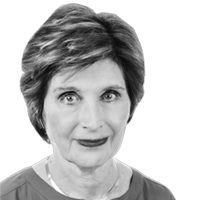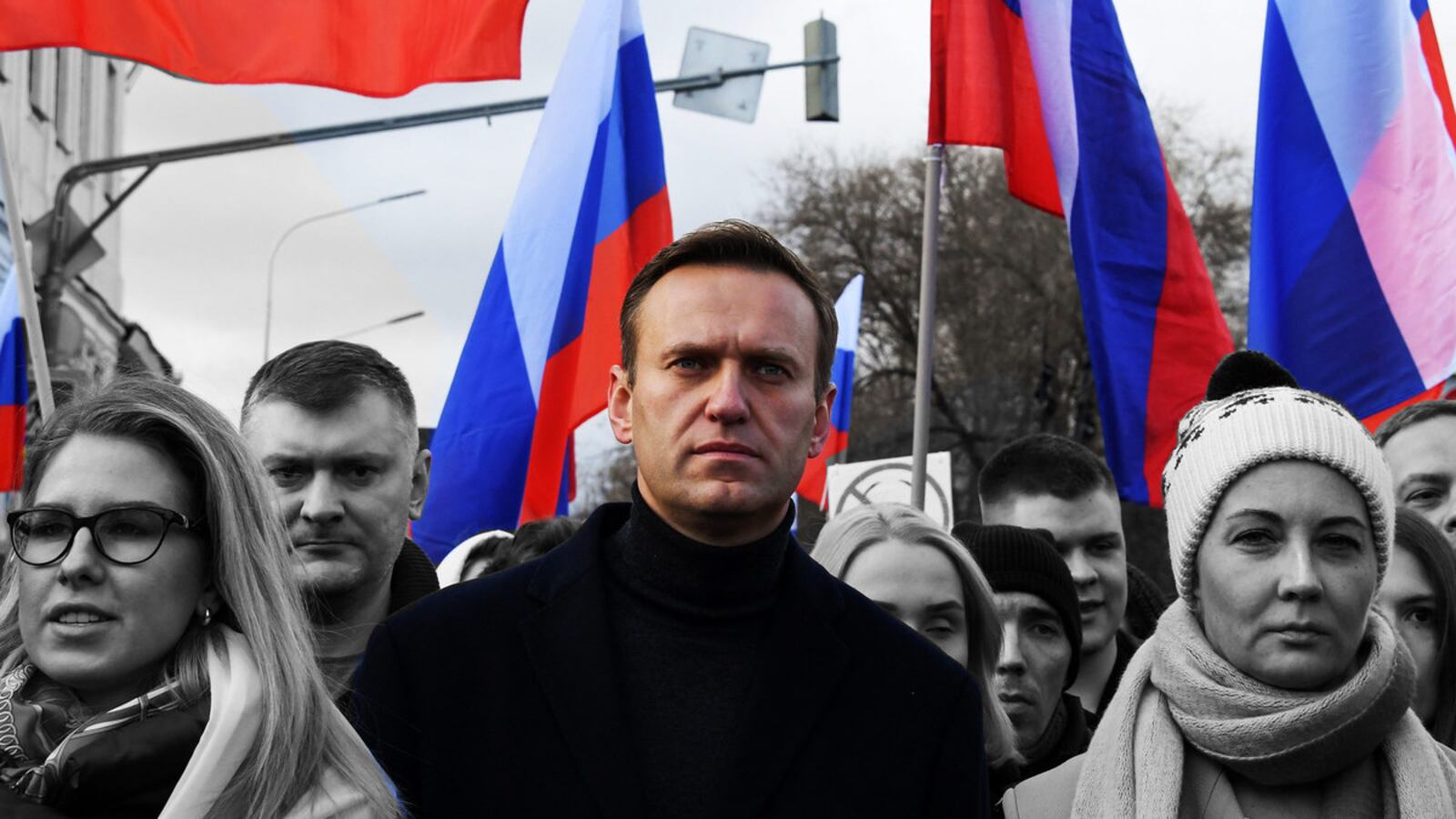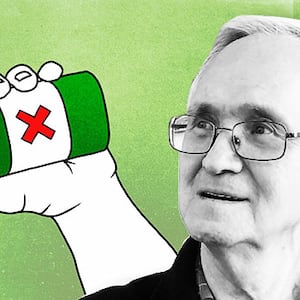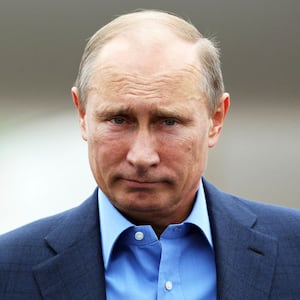Now that Russian opposition leader Alexei Navalny has come out of his medically induced coma and seems to be improving, members of Vladimir Putin’s entourage must be wringing their hands over what appears to be a botched attempt by the Russian security services (in this case, probably the FSB) to get rid of the Kremlin’s most dangerous critic. Not only did Navalny survive; the West is likely to impose further stiff economic sanctions on Russia, and Germany could even cancel the natural gas pipeline project, Nord Stream 2, between the two countries.
But Putin’s men have only themselves to blame. Although Putin doubtless gave the order to poison Navalny on Aug. 20, he would not have taken this decision without knowing that he had the support of key members of the Kremlin elite, who themselves had strong reasons for wanting Navalny dead. For close to a decade Navalny and his Anti-Corruption Foundation (FPK) have been targeting top government officials, oligarchs and other Putin allies in brilliant, meticulously researched exposés of corruption, viewed by millions on Navalny.com. Poisoning Navalny with Novichok was a high-risk operation, but for Navalny’s fiercest Kremlin enemies, it may have seemed worth a try.
WHY THE FSB?
The GRU (Russian military intelligence) is known to have killed, or attempted to kill, numerous victims on behalf of the Kremlin, including Russian defector Sergei Skripal, who in 2018 was poisoned in Britain with Novichok, along with his daughter. But, as with the Russian Foreign Intelligence Service (SVR), the GRU’s mandate covers foreign operations: intelligence-gathering and “active measures” (including disinformation, special military operations and targeted murders) abroad. While the FSB since 2006 has also been tasked with eliminating enemies outside Russia, its main function is domestic counter-intelligence and counter-terrorism, including “extremism,” a broad category of anti-state activism that could conceivably apply to Navalny.
Novichok, a deadly nerve agent, was developed in the Soviet period and produced at least until the early 1990s at a top-secret Russian government facility in the city of Shikhany in the Saratov region. Such facilities are under heavy guard by the FSB. Banned by the 1997 Chemical Weapons Convention, which Russia signed, Novichok can be a liquid or powder and is a binary substance, formed by mixing together two substances that are not toxic on their own. This feature, which makes Novichok easy to store and transport, along with the difficulty in identifying Novichok in victims, may explain why it was chosen for the attack on Navalny.
To be sure, the plot to kill Skripal turned out to be a dismal failure. Unexpectedly, Skripal and his daughter, Iulia, survived, and chemical experts were able to determine the poison, thus pointing the finger at the Russian government. Even worse, the GRU agents who carried out the attack were identified from CCTV cameras after they departed from Britain. But in the Navalny case, the FSB was presumably in charge and the operation was executed in Russia, so there was much less risk of the perpetrators being discovered.
Navalny was poisoned either from his underclothing, contaminated at the Tomsk hotel he stayed in on August 19-20, or by ingesting the substance from tea he drank at the Tomsk airport. If all had gone according to plan, Navalny would have died on the four-hour flight back to Moscow, where Russian medical authorities could then easily cover up the cause of death, as they apparently did with investigative journalist Yuri Shchekochikhin, who died in July 2003 from poisoning with an undetermined toxic substance. Instead, the pilot made an emergency landing at Omsk and Navalny immediately received an antidote (atropine) at the local hospital because of what doctors said was his “clinical presentation.” (Under apparent pressure from Kremlin agents, the doctors then insisted that Navalny's illness was a result of natural causes, such as "metabolic disorders" or diabetes.)
MOTIVES
As Russian journalist Yevgenia Albats pointed out on Tuesday, the attack on Navalny occurred just at the time he was visiting the Siberian cities of Novosibirsk and Tomsk to promote the strategy of “smart voting” in the crucial upcoming September regional elections. The strategy, which proved successful in past elections, involves persuading voters to rally around the one candidate who has the best chance of defeating the candidate sponsored by the Kremlin's United Russia Party.
Navalny was also urging people to follow the example of protesters in Belarus, who were demanding an end to the dictatorship of Alexander Lukashenko. The possibility that similar unrest in Russia could threaten Putin's regime was no doubt causing deep concern in the Kremlin. But Navalny's relentless campaign against high-level government corruption provided the backdrop for the Kremlin's decision to move against him.
The Russian investigative group proekt.media recently published an extensive history of the Kremlin's attempts to silence "enemy number one" Navalny over the past decade, including arrests on bogus charges, ambitious propaganda campaigns, and physical assaults on Navalny and his associates. It is clear from this reporting that many of Putin's top advisers, not just those in the security services, have been engaged in the anti-Navalny efforts. Notably, the first deputy chief of Putin's administration, Sergei Kirienko, a former liberal ally of slain democratic opposition leader Boris Nemtsov, conducted a large meeting of experts during preparations for the March 2018 presidential elections to discuss whether or not Navalny should be jailed yet again. According to the report: “Kirienko noted in the meeting that sending Navalny to jail would be easy as pie: he is constantly breaching the terms of his suspended sentence by organizing unauthorized protests. As a result of these breaches his suspended sentence can easily be converted into prison camp time. That way, he would be prevented from causing trouble in the elections.”
As far back as 2010, Navalny had ambitious plans to use corruption exposés as a means to undermine the arbitrary, undemocratic Kremlin regime. When he announced on Live Journal on April 28 of that year that he had won a six-month fellowship to attend Yale University, he assured his supporters that, while there, he would continue to “sharpen his stick.”
“I want to seriously expand the toolbox of our work and learn / understand how to use against Effective Managers [of the Kremlin] any foreign corruption laws, US / EU anti-money laundering laws, exchange rules, etc. We must be able to soak EM where they are not protected by greedy crooks from the General Prosecutor's Office and Russian courts,” he wrote.
Although, Navalny did not manage to fully enlist the U.S. and the European Union in his plans to expose the Kremlin, the investigations of corruption that he published on Navalny.com were viewed by millions of Russians. Here is a small sampling of the exposes produced by Navalny and the FPK that may have incurred the wrath of the Russian privileged classes:
8/3/11: Navalny reveals that a company owned by Russian banker Viktor Vekselberg bought the building of the Hungarian Trade Mission in Moscow for $21 million in 2008 and sold it to the Russian government for over five times that amount the next year. Navalny questions the decision of Prime Minister Dmitry Medvedev to have a “cheater” like Vekselberg put in charge of developing the Skolkovo high-tech business center.
10/8/2012: Navalny provides detailed documentation on the lives abroad of the family of Putin’s longtime friend Vladmir Yakunin, then head of the Russian Railways: “The hypocritical bastard who hauls billions into the impoverished and dilapidated Russian Railways, constantly demands new government subsidies, launches projects of insane cost. He comfortably settled his family in Switzerland and England, and in all seriousness he has the audacity to teach us patriotism.”
12/25/2012: Navalny points out that Sergei Zhelezniak, the “patriotic” deputy chairman of the Russian Duma, from the United Russia Party, decries the evil influence of foreigners and promotes everything that is Russian. Yet he has sent his two daughters to the American School in Switzerland, where annual tuition is 70,000 Swiss francs, and his older daughter is now studying at a British university.
8/13/2013: “Yet another daughter. Another apartment.” Detailed report on how Moscow Mayor Sergei Sobyanin “privatized” state property for his daughters’ lavish Moscow apartments.
6/16/2014 Revelation by Navalny that Igor Sechin, head of the state oil company Rosneft, has given himself an annual salary of $50 million. A later post describes the $150 million yacht belonging to Sechin’s wife.
11/10/2015: Documentation of the $18 million mansion outside Moscow that Defense Minister Sergei Shoigu has registered in the name of a family member in order to keep his ownership hidden.
12/1/2015: FPK publishes the film Chaika, documenting the extensive corruption of Prosecutor-General Iurii Chaika, his family and associates.
3/2/2017: An explosive FPK video, with photographs from drones, shows Prime Minister Dmitry Medvedev’s palatial estate, along with his country homes, yachts, and vineyards. The video goes viral, with an estimated 22 million views. An attached report claims, among other things, that Medvedev took bribes from Russian oligarchs.
8/17/2017: Film about the extravagant lifestyle of the son of Putin’s press secretary, Dmitry Peskov. Earlier Navalny had reported about Peskov’s expensive sports cars, designer watches and vacations on luxury yachts.
2/8/2018: Navalny publishes a scandalous exposé showing Russian oligarch Oleg Deripaska on a cruise off the coast of Norway with a deputy Russian prime minister and a bevy of female escorts, including the infamous Nastya Rybka. (Deripaska launched a lawsuit against Navalny in March, claiming Navalny had “damaged his business reputation,” but suspended the action last week because of “humanitarian considerations.”)
8/23/2018: Navalny publishes a video about National Guard chief Viktor Zolotov (formerly head of Putin's personal guard), claiming that Zolotov was engaged in corruption through food-supply contracts for his troops. After challenging Navalny to a duel, Zolotov sued him, but the lawsuit was rejected on technical grounds.
1/31/2019: A video by FPK links Yevgeny Prigozhin (“Putin's chef” and sponsor of the shadowy Wagner mercenary group) to a company that supplied food to Moscow’s school children, causing a large outbreak of serious food poisoning. (Prigozhin later sued FPK, Navalny and his colleague Liubov Sobol, who produced the film, and said just recently, as Navalny lay in a coma, “I intend to strip this group of unscrupulous people of their clothes and shoes.”)
2/21/19: Navalny displays the $13 million home of Nikolai Patrushev, former FSB chief and head of the National Security Council, and quotes Patrushev warning of the dangers of the “cult of personal enrichment.”
3/22/19: A Navalny video shows the wife of Aleksandr Bastrykin, head of the powerful Russian Investigative Committee, wearing a $57,000 Audemars Piguet watch. Navalny wonders how this is possible when Bastrykin earns an annual salary of $200,000. (In 2012, Navalny published an exposé about Bastrykin’s secret real estate holdings and business in the Czech Republic.)
Maybe some of Navalny's enemies would have preferred the “vegetarian option,” to coin Albats’ phrase, of putting Navalny back in prison, rather than to kill him. But they clearly had reason to want him out of the picture.
REPERCUSSIONS
In response to requests by Western governments for Russia to investigate the Navalny poisoning, the Russian Ministry of Foreign Affairs issued a statement on Wednesday reiterating that Russia needed the biochemical studies from German experts who concluded that Navalny was poisoned by Novichok before Russian law enforcement agencies could begin an investigation.
But of course Russian authorities have no intention of examining a crime that they themselves committed. Journalist Albats explained the Russian strategy: “Give us the data so we can take into account our mistakes with the dose of poison and do a better job against our enemies next time.”
It is hardly surprising that Andrei Lugovoy, the former FSB officer who, with a colleague, poisoned Alexander Litvinenko by lacing his tea with polonium-210 in November 2006, will be participating in a Russian parliamentary inquiry into the Navalny case. Lugovoy, who was elected a member of the Duma in 2007, told Dozhd' television: “Everything that happened to Navalny is a perfectly prepared, deeply conspiratorial special operation; I will not rule out the special services of Great Britain and the United States.”
Western governments have hesitated to point the finger directly at Putin in past attacks of violence against his political critics. Even with the blatant evidence in the 2006 murder of Litvinenko, the British judge's verdict was only that Putin and Patrushev, then FSB chief, probably ordered the crime. Now, with the Navalny poisoning, Western leaders should acknowledge not only the criminality of Putin and his security services, but also the culpability of the sycophantic Russian elite, including oligarchs who freely avail themselves of the privileges the West offers.
President Trump, of course, cannot be expected to back new, more severe sanctions against Putin and his supporters. This is one reason that Putin supports Trump’s re-election in November. But if European governments, with Germany in the lead, follow through with sanctions, they will hit the Kremlin elite hard. Wealthy Russians don’t like being forced to keep their fortunes inside their country, or their yachts off the Mediterranean.
In the meantime, those who champion the cause of Russian democracy will continue to hope for Navalny’s recovery. In a May 2011 interview, Navalny dismissed, with his characteristic irony, a suggestion that he could somehow be protected from getting killed for his political opposition: “Who is going to protect me? The people in power control the FSB, the prosecutor's office, the militia, GPS, hot water, cold water, extraction of gas, foreign intelligence, everything. There is no doubt that these people can do what they want with me.” Now, more than nine years later, it seems that Navalny may have underestimated his own incredible resilience.







